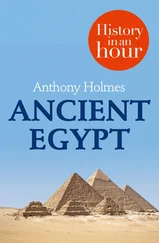Arthur Anthony MacDonell - A History of Sanskrit Literature
Здесь есть возможность читать онлайн «Arthur Anthony MacDonell - A History of Sanskrit Literature» — ознакомительный отрывок электронной книги совершенно бесплатно, а после прочтения отрывка купить полную версию. В некоторых случаях можно слушать аудио, скачать через торрент в формате fb2 и присутствует краткое содержание. Жанр: foreign_prose, foreign_antique, на английском языке. Описание произведения, (предисловие) а так же отзывы посетителей доступны на портале библиотеки ЛибКат.
- Название:A History of Sanskrit Literature
- Автор:
- Жанр:
- Год:неизвестен
- ISBN:нет данных
- Рейтинг книги:5 / 5. Голосов: 1
-
Избранное:Добавить в избранное
- Отзывы:
-
Ваша оценка:
- 100
- 1
- 2
- 3
- 4
- 5
A History of Sanskrit Literature: краткое содержание, описание и аннотация
Предлагаем к чтению аннотацию, описание, краткое содержание или предисловие (зависит от того, что написал сам автор книги «A History of Sanskrit Literature»). Если вы не нашли необходимую информацию о книге — напишите в комментариях, мы постараемся отыскать её.
A History of Sanskrit Literature — читать онлайн ознакомительный отрывок
Ниже представлен текст книги, разбитый по страницам. Система сохранения места последней прочитанной страницы, позволяет с удобством читать онлайн бесплатно книгу «A History of Sanskrit Literature», без необходимости каждый раз заново искать на чём Вы остановились. Поставьте закладку, и сможете в любой момент перейти на страницу, на которой закончили чтение.
Интервал:
Закладка:
Varuṇa’s omniscience is often dwelt on. He knows the flight of the birds in the sky, the path of ships in the ocean, the course of the far-travelling wind. He beholds all the secret things that have been or shall be done. He witnesses men’s truth and falsehood. No creature can even wink without him. As a moral governor Varuṇa stands far above any other deity. His wrath is roused by sin, which is the infringement of his ordinances, and which he severely punishes. The fetters with which he binds sinners are often mentioned. A dispeller, hater, and punisher of falsehood, he is gracious to the penitent. He releases men not only from the sins which they themselves commit, but from those committed by their fathers. He spares the suppliant who daily transgresses his laws, and is gracious to those who have broken his ordinances by thoughtlessness. There is, in fact, no hymn to Varuṇa in which the prayer for forgiveness of guilt does not occur, as in the hymns to other deities the prayer for worldly goods.
With the growth of the conception of the creator, Prajāpati, as a supreme deity, the characteristics of Varuṇa as a sovereign god naturally faded away, and the dominion of waters, only a part of his original sphere, alone remained. This is already partly the case in the Atharva-veda , and in post-Vedic mythology he is only an Indian Neptune, god of the sea.
The following stanzas from a hymn to Varuṇa (vii. 89) will illustrate the spirit of the prayers addressed to him:—
May I not yet, King Varuṇa,
Go down into the house of clay:
Have mercy, spare me, mighty Lord.
Thirst has come on thy worshipper
Though standing in the waters’ midst: 4 4 A reference to dropsy, with which Varuṇa is thought to afflict sinners.
Have mercy, spare me, mighty Lord.
O Varuṇa, whatever the offence may be
That we as men commit against the heavenly folk
When through our want of thought we violate thy laws,
Chastise us not, O God, for that iniquity.
There are in the Rigveda five solar deities, differentiated as representing various aspects of the activity of the sun. One of the oldest of these, Mitra, the “Friend,” seems to have been conceived as the beneficent side of the sun’s power. Going back to the Indo-Iranian period, he has in the Rigveda almost entirely lost his individuality, which is practically merged in that of Varuṇa. With the latter he is constantly invoked, while only one single hymn (iii. 59) is addressed to him alone.
Sūrya (cognate in name to the Greek Hēlios) is the most concrete of the solar deities. For as his name also designates the luminary itself, his connection with the latter is never lost sight of. The eye of Sūrya is often mentioned, and Dawn is said to bring the eye of the gods. All-seeing, he is the spy of the whole world, beholding all beings and the good or bad deeds of mortals. Aroused by Sūrya, men pursue their objects and perform their work. He is the soul or guardian of all that moves and is fixed. He rides in a car, which is generally described as drawn by seven steeds. These he unyokes at sunset:—
When he has loosed his coursers from their station,
Straightway Night over all spreads out her garment (i. 115, 4).
Sūrya rolls up the darkness like a skin, and the stars slink away like thieves. He shines forth from the lap of the dawns. He is also spoken of as the husband of Dawn. As a form of Agni, the gods placed him in heaven. He is often described as a bird or eagle traversing space. He measures the days and prolongs life. He drives away disease and evil dreams. At his rising he is prayed to declare men sinless to Mitra and Varuṇa. All beings depend on Sūrya, and so he is called “all-creating.”
Eleven hymns, or about the same number as to Sūrya, are addressed to another solar deity, Savitṛi, the “Stimulator,” who represents the quickening activity of the sun. He is pre-eminently a golden deity, with golden hands and arms and a golden car. He raises aloft his strong golden arms, with which he blesses and arouses all beings, and which extend to the ends of the earth. He moves in his golden car, seeing all creatures, on a downward and an upward path. He shines after the path of the dawn. Beaming with the rays of the sun, yellow-haired, Savitṛi raises up his light continually from the east. He removes evil dreams and drives away demons and sorcerers. He bestows immortality on the gods as well as length of life on man. He also conducts the departed spirit to where the righteous dwell. The other gods follow Savitṛi’s lead; no being, not even the most powerful gods, Indra and Varuṇa, can resist his will and independent sway. Savitṛi is not infrequently connected with the evening, being in one hymn (ii. 38) extolled as the setting sun:—
Borne by swift coursers, he will now unyoke them:
The speeding chariot he has stayed from going.
He checks the speed of them that glide like serpents:
Night has come on by Savitṛi’s commandment.
The weaver rolls her outstretched web together,
The skilled lay down their work in midst of toiling,
The birds all seek their nests, their shed the cattle:
Each to his lodging Savitṛi disperses.
To this god is addressed the most famous stanza of the Rigveda , with which, as the Stimulator, he was in ancient times invoked at the beginning of Vedic study, and which is still repeated by every orthodox Hindu in his morning prayers. From the name of the deity it is called the Sāvitrī , but it is also often referred to as “the Gāyatrī ,” from the metre in which it is composed:—
May we attain that excellent
Glory of Savitṛi the god,
That he may stimulate our thoughts (iii. 62, 10).
A peculiarity of the hymns to Savitṛi is the perpetual play on his name with forms of the root sū , “to stimulate,” from which it is derived.
Pūshan is invoked in some eight hymns of the Rigveda . His name means “Prosperer,” and the conception underlying his character seems to be the beneficent power of the sun, manifested chiefly as a pastoral deity. His car is drawn by goats and he carries a goad. Knowing the ways of heaven, he conducts the dead on the far path to the fathers. He is also a guardian of roads, protecting cattle and guiding them with his goad. The welfare which he bestows results from the protection he extends to men and cattle on earth, and from his guidance of mortals to the abodes of bliss in the next world.
Judged by a statistical standard, Vishṇu is only a deity of the fourth rank, less frequently invoked than Sūrya, Savitṛi, and Pūshan in the Rigveda , but historically he is the most important of the solar deities. For he is one of the two great gods of modern Hinduism. The essential feature of his character is that he takes three strides, which doubtless represent the course of the sun through the three divisions of the universe. His highest step is heaven, where the gods and the fathers dwell. For this abode the poet expresses his longing in the following words (i. 154, 5):—
May I attain to that, his well-loved dwelling,
Where men devoted to the gods are blessèd:
In Vishṇu’s highest step—he is our kinsman,
Of mighty stride—there is a spring of nectar.
Vishṇu seems to have been originally conceived as the sun, not in his general character, but as the personified swiftly moving luminary which with vast strides traverses the three worlds. He is in several passages said to have taken his three steps for the benefit of man.
Читать дальшеИнтервал:
Закладка:
Похожие книги на «A History of Sanskrit Literature»
Представляем Вашему вниманию похожие книги на «A History of Sanskrit Literature» списком для выбора. Мы отобрали схожую по названию и смыслу литературу в надежде предоставить читателям больше вариантов отыскать новые, интересные, ещё непрочитанные произведения.
Обсуждение, отзывы о книге «A History of Sanskrit Literature» и просто собственные мнения читателей. Оставьте ваши комментарии, напишите, что Вы думаете о произведении, его смысле или главных героях. Укажите что конкретно понравилось, а что нет, и почему Вы так считаете.












